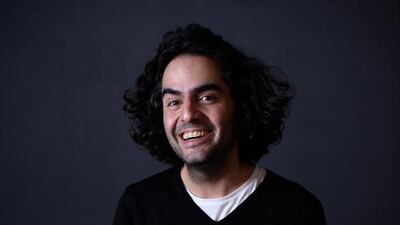When I spoke to Iranian- British director Babak Anvari last summer, his latest Farsi film Under the Shadow was in post-production, and he said he expected it to be ready to debut by the end of last year.
At the time, the most exciting aspect of this news seemed to be that a world debut at the Dubai International Film Festival was a possibility for a horror movie, which is set in Tehran at the height of the Iran-Iraq war.
As it transpired, this was just a little too ambitious, and Anvari was about a month out with his estimate – but what a fortuitous delay it has turned out to be.
This month, long-standing international economic and political sanctions on his homeland were lifted, with mixed receptions in global political circles – while tensions between Iran and some other countries in the region have risen to a level unseen since the war with Iraq ended.
All of which has contributed to Under the Shadow becoming one of the most talked-about and anticipated films at the Sundance Film Festival, where it had its world debut on Friday night.
The film tells the story of a family and their miraculous escape when a missile crashes through the roof of their home in Tehran and fails to explode. But a series of unexplained events soon after suggests the presence of malevolent djinns – the supernatural creatures of Arabian mythology.
Speaking to me backstage at Park City’s Egyptian Theatre before the screening, Anvari was keen to distance his movie from the current events in his homeland.
Although he admitted they have undoubtedly contributed to the buzz surrounding the film, he hopes that audiences will see beyond the international spotlight shining on Iran and judge the film on its own merits.
“I don’t like to use current events to push or promote the film,” he says, “although the film does make certain points about any war, and the tension and hysteria a nation goes through that creates a personal kind of hysteria.”
“Ultimately I wanted to tell my story, and I don’t want it to be overshadowed by current events. Hopefully people will see it in its own right and look at the story it’s trying to tell.
“I think the film has a very universal feel to it. At the core, it’s about the relationship between a mother and her daughter, which is a very universal thing. It also looks at how war and turmoil can affect individuals in any country – and I think that has something for everyone, globally.” Although Anvari is wary of being too closely linked to political events, he does hope that the lifting of sanctions will improve the lives of Iranians.
“I think the sanctions being lifted will make life much easier for ordinary Iranians in general, and hopefully will have an effect on the lives of filmmakers who will hopefully get more freedom to do more interesting work,” he says.
“I have so much respect for Iranian filmmakers who have stayed in the country, just for the way they’ve managed to keep going – and I really hope things improve for them.”
Although he missed out on the chance of a debut at Diff, the opportunity to instead launch the film at the world’s leading celebration of independent cinema is a dream come true for Anvari.
“Honestly, I would have loved to have it at Diff, but Sundance has always been my dream since I started to become fascinated with filmmaking,” he says.
“It’s a great platform to launch from. I’m loving the fact we’re this year’s only non-US and non-English language selection in the midnight slots, and I’m just really excited to get down there and see how the audience reacts.”
cnewbould@thenational.ae

